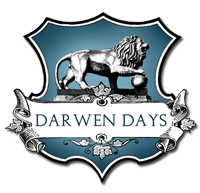In a recent interview, Orla Chennaoui opened up about the impact of online trolling on her mental health and career. Despite the negative comments and criticism she has received, Chennaoui expressed gratitude for the trolling, stating that it serves as a reflection of people’s deepest fears. She believes that the hateful messages she receives are a manifestation of the insecurities and fears of those who choose to attack her online.
By acknowledging this, Chennaoui is able to separate herself from the negativity and not take it personally. Instead, she views the trolling as an opportunity for growth and self-reflection. Chennaoui’s resilience in the face of online harassment serves as a powerful example for others facing similar challenges in the digital world. She encourages individuals to look beyond the hateful comments and recognize that they are a reflection of the troll’s own internal struggles, rather than a true reflection of themselves. By adopting this mindset, Chennaoui is able to navigate the online world with grace and strength, refusing to let the negativity define her or hinder her success.

How Trolling Mirrors Personal Insecurities
Trolling is a behavior that often mirrors personal insecurities. When individuals engage in trolling, they are seeking to provoke a reaction from others by making inflammatory or offensive comments. This behavior can be a reflection of the troll’s own feelings of inadequacy or insecurity. By attacking others online, trolls may feel a sense of power or control that they lack in their own lives. Additionally, trolling can be a way for individuals to deflect attention away from their own shortcomings by focusing on the flaws or vulnerabilities of others. In this way, trolling can serve as a defense mechanism for individuals who are struggling with their own insecurities.
Furthermore, trolling can also be a way for individuals to seek validation or attention. By eliciting a strong reaction from others, trolls may feel a sense of importance or significance. This can be especially appealing to individuals who feel marginalized or overlooked in their offline lives. Trolling allows these individuals to assert themselves in a way that they may not feel comfortable doing in face-to-face interactions. However, this need for validation through negative behavior can ultimately perpetuate feelings of insecurity and inadequacy.
In conclusion, trolling often reflects personal insecurities and feelings of inadequacy. By attacking others online, trolls may be attempting to compensate for their own perceived shortcomings or vulnerabilities. Additionally, trolling can serve as a way for individuals to seek validation or attention that they may not receive in their offline lives. Ultimately, trolling can be a destructive behavior that perpetuates negative feelings and reinforces a cycle of insecurity.
Orla Chennaoui’s Perspective on Online Criticism
Orla Chennaoui, a prominent sports journalist, has a unique perspective on online criticism. She believes that everyone is entitled to their opinion and that criticism, whether positive or negative, is part of the job. Chennaoui acknowledges that the internet has provided a platform for people to express their thoughts and feelings more freely than ever before. However, she also recognizes that this freedom comes with a downside, as online criticism can often be harsh and hurtful.
Despite this, Chennaoui remains unfazed by the negativity, choosing to focus on the constructive feedback instead. She believes that criticism can be a valuable tool for improvement and growth, as long as it is delivered in a respectful manner. Chennaoui also emphasizes the importance of not taking online criticism personally, as it is often a reflection of the commenter’s own issues rather than a true assessment of the individual being criticized. Overall, Orla Chennaoui’s perspective on online criticism is one of resilience and positivity, choosing to see it as an opportunity for learning and self-improvement rather than a source of distress.

The Impact of Negative Feedback on Personal Growth
Receiving negative feedback can have a significant impact on personal growth. While it may be uncomfortable to hear criticism about ourselves, it can provide valuable insights into areas where we need to improve. Negative feedback can serve as a catalyst for self-reflection and can push us to strive for excellence in our personal and professional lives. By taking constructive criticism to heart and using it as a tool for growth, we can develop a greater sense of self-awareness and a more realistic understanding of our strengths and weaknesses. This can ultimately lead to enhanced personal growth and development.
Negative feedback can also help us to build resilience and adaptability, as we learn how to accept criticism gracefully and use it as a stepping stone towards self-improvement. In this way, negative feedback can be a powerful motivator for change and can propel us towards achieving our full potential. It is important to remember that feedback, whether positive or negative, is simply a reflection of someone else’s perception and should be used as a tool for growth rather than a source of discouragement. By embracing negative feedback as an opportunity for learning and growth, we can cultivate a mindset of continuous improvement and personal development.
Turning Trolling into a Source of Strength
Trolling, the act of intentionally provoking others online, has become a common occurrence in the digital age. While trolling is often seen as a negative behavior that can lead to conflict and harm, it can also be turned into a source of strength. By reframing trolling as an opportunity for growth and resilience, individuals can harness the power of trolling to build their own emotional fortitude and self-confidence. Instead of allowing trolling to bring them down, individuals can use it as a chance to practice self-control and develop coping mechanisms. By learning to navigate and manage the negativity of trolling, individuals can emerge stronger and more resilient than before.
In a world where online interactions can be fraught with tension and conflict, turning trolling into a source of strength can help individuals to navigate the digital landscape with grace and confidence. By embracing the challenges of trolling and using them as opportunities for personal growth, individuals can transform a negative experience into a positive one. In this way, trolling can become a source of strength that empowers individuals to rise above the negativity and thrive in the face of adversity. By reframing trolling as a learning experience and a chance to develop resilience, individuals can turn what may have once been a source of distress into a source of personal strength and empowerment.

Insights from Chennaoui’s Experience with Online Harassment
Online harassment is a pervasive issue that many individuals face on a daily basis. Chennaoui’s experience sheds light on the damaging effects of this type of behavior. Through her story, we gain insight into the emotional toll that online harassment can take on a person’s mental health and well-being. Chennaoui’s experience highlights the importance of creating a safe and supportive online environment for all individuals. It also serves as a reminder of the power of words and the impact that they can have on someone’s life.
By sharing her story, Chennaoui encourages others to speak out against online harassment and to take a stand against this harmful behavior. Her experience serves as a cautionary tale, reminding us of the need to treat others with kindness and respect, both online and offline. Ultimately, Chennaoui’s experience underscores the importance of fostering a culture of empathy and understanding in order to combat the prevalence of online harassment in today’s digital age.
